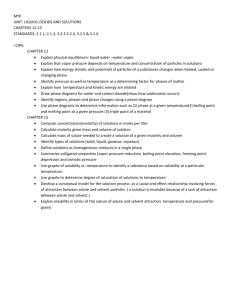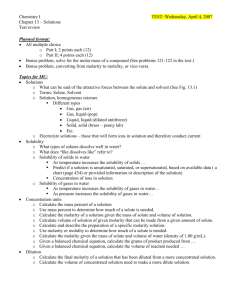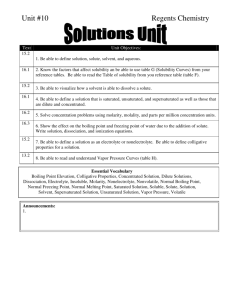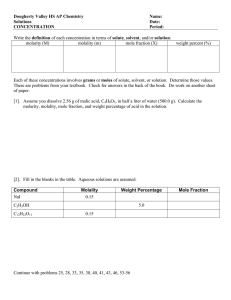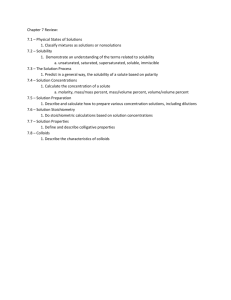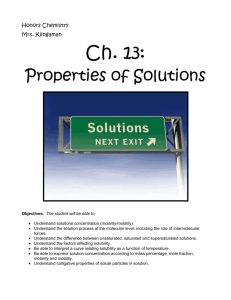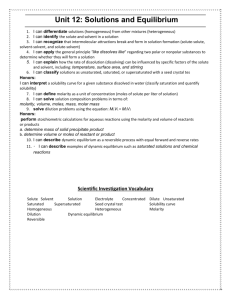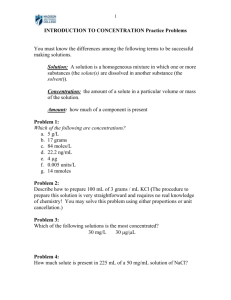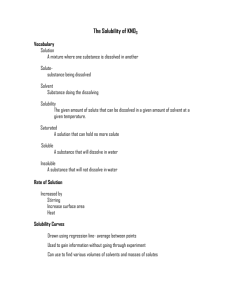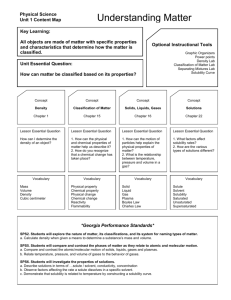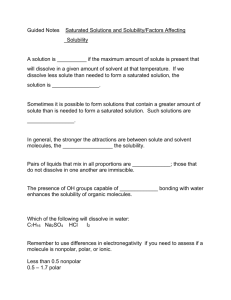Unit 2: Solutions - Belding Area Schools
advertisement
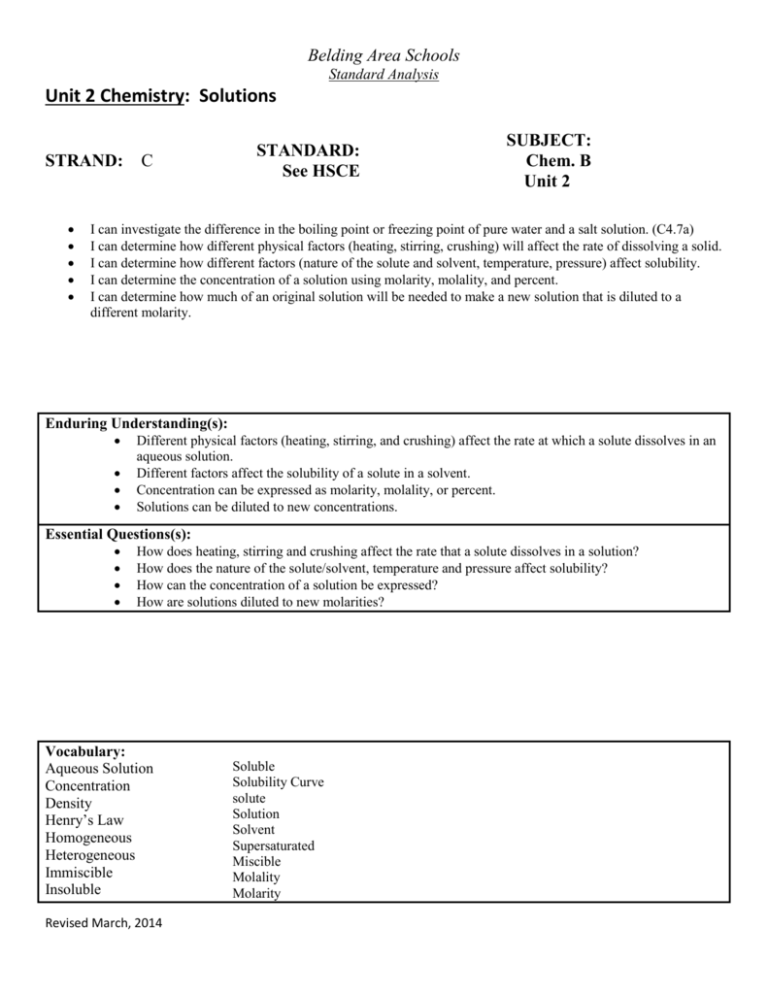
Belding Area Schools Standard Analysis Unit 2 Chemistry: Solutions STRAND: C STANDARD: See HSCE SUBJECT: Chem. B Unit 2 I can investigate the difference in the boiling point or freezing point of pure water and a salt solution. (C4.7a) I can determine how different physical factors (heating, stirring, crushing) will affect the rate of dissolving a solid. I can determine how different factors (nature of the solute and solvent, temperature, pressure) affect solubility. I can determine the concentration of a solution using molarity, molality, and percent. I can determine how much of an original solution will be needed to make a new solution that is diluted to a different molarity. Enduring Understanding(s): Different physical factors (heating, stirring, and crushing) affect the rate at which a solute dissolves in an aqueous solution. Different factors affect the solubility of a solute in a solvent. Concentration can be expressed as molarity, molality, or percent. Solutions can be diluted to new concentrations. Essential Questions(s): How does heating, stirring and crushing affect the rate that a solute dissolves in a solution? How does the nature of the solute/solvent, temperature and pressure affect solubility? How can the concentration of a solution be expressed? How are solutions diluted to new molarities? Vocabulary: Aqueous Solution Concentration Density Henry’s Law Homogeneous Heterogeneous Immiscible Insoluble Revised March, 2014 Soluble Solubility Curve solute Solution Solvent Supersaturated Miscible Molality Molarity Belding Area Schools Standard Analysis Percent Solutions Saturated Non-polar Polar Unsaturated HSCE (High School Content Expectations) See above Information/Rules/Procedures/Resources/Assessments Instructional Strategies for all students: See instructors Moodle page for daily lesson plans, activities, labs, power points, homework, and tutorials. Differentiated Instruction for at-risk students: After school study sessions. Review Guides Tutorials on Moodle Retesting opportunity on all assessments Co-taught classes available Assessments: On staff share drive. Revised March, 2014
